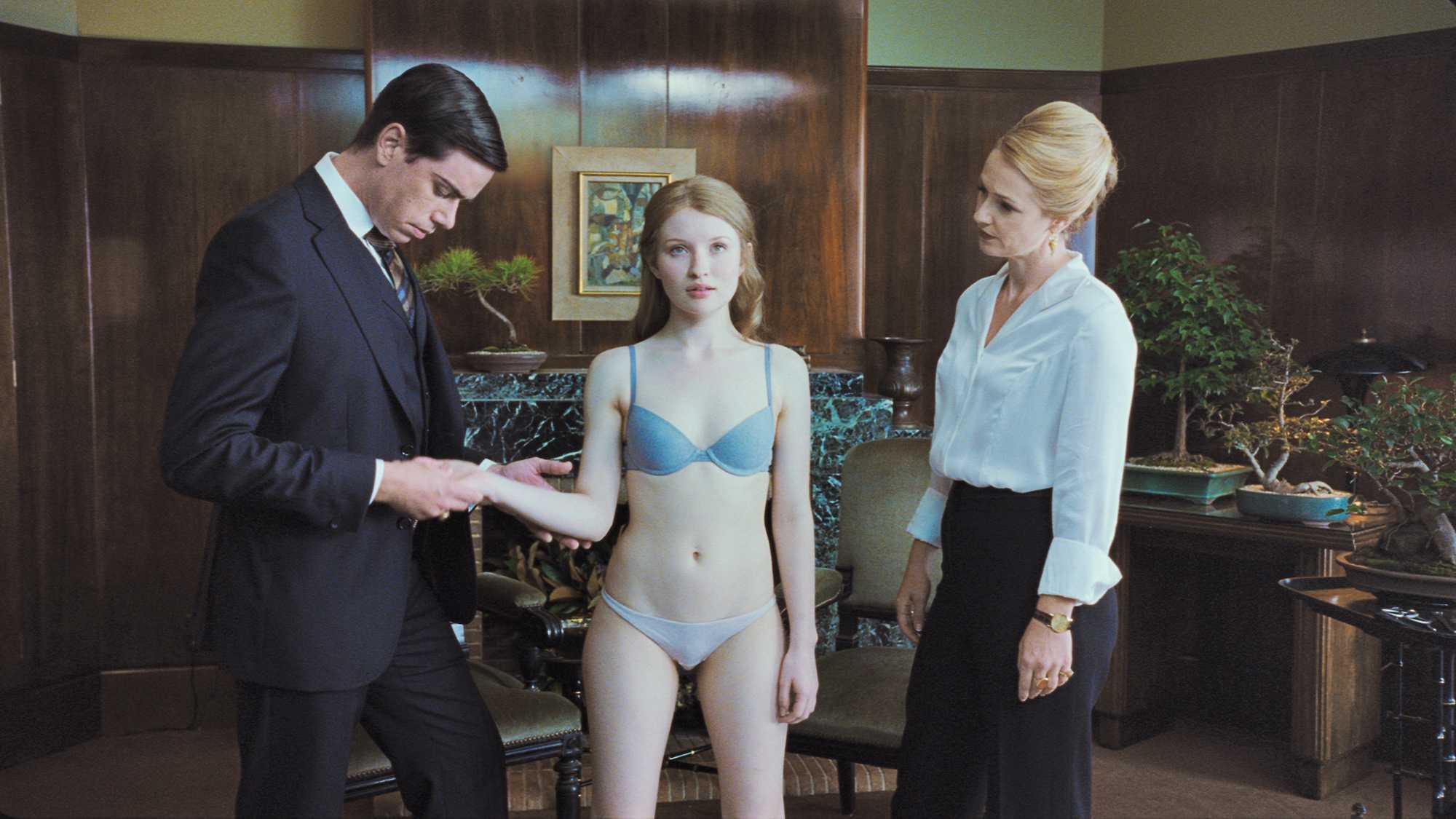This icily erotic modern fairytale by Australian novelist Julia Leigh was a controversial contender at Cannes. “A brave and beautiful calling card for both filmmaker and star.” — Empire

Sensuous, intriguing, complex and unafraid. [Leigh's] talent and the film are extraordinary.
Screened as part of NZIFF 2011
Sleeping Beauty 2011
Julia Leigh, the award-winning Australian author of The Hunter and Disquiet, was mentored by Jane Campion on her filmmaking debut – an unsettling erotic fable selected for Official Competition at the Cannes Film Festival.
“It’s a startlingly poised, modern-day fairy tale, a strange marriage of Jane Campion and Lars Von Trier that titillates, terrifies and haunts in equal measure. Emily Browning plays Lucy, a university student who takes up a job as a ‘Sleeping Beauty’. The work is very simple: she is driven to a rural mansion, sedated, stripped, and then given over to rich clients who can do (almost) anything they wish with her…. But Lucy is a strange fish; she has a dynamic passivity that leads her to sleep with overweight strangers on the toss of a coin... Her decision to risk her life with strangers seems to be driven as much by curiosity and philosophical stance as it is by money. Browning’s performance is utterly fearless, suffused with mystery, cold as ice. Leigh’s spare screenplay trusts the audience to fill in the imaginative spaces, and her framing is precise and economical. Fast-rising composer Ben Frost contributes a potent score. What a strange, ensnaring achievement, not least for a first-time feature, Sleeping Beauty is: no male director could have made it.” — Sukhdev Sandhu, Daily Telegraph
“Sleeping Beauty isn’t a perfect film, but it is, in many ways, near-perfect cinema – a unique story, untellable in any other medium, that resists both easy dismissal and glib praise, sinking into the mind with the ungraspable, all-pervading power of a dream.” — James Rocchi, The Playlist